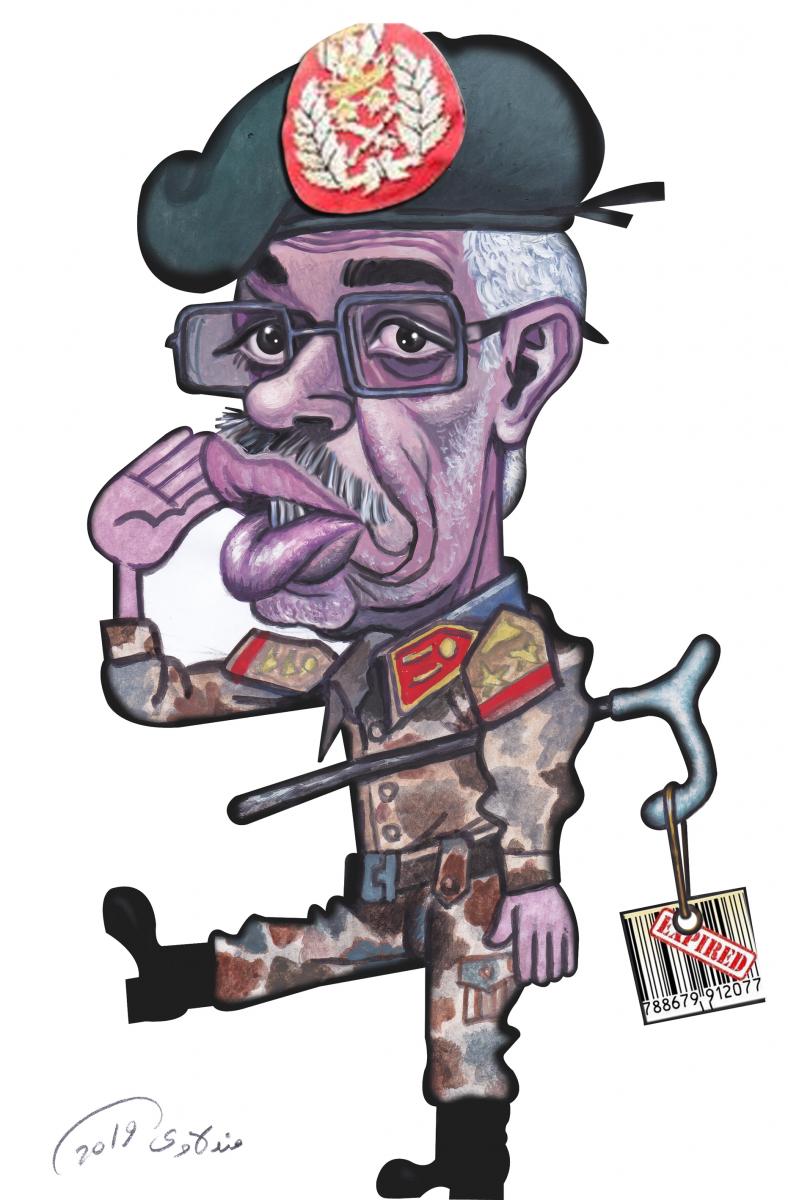
1 - Born in 1957, Ahmed Awad Ibn Auf is a career military man who took over the country for just 24 hours on 11 April following the protests that ended President Omar al-Bashir’s 30-year reign. “I, the defense minister, chairman of the High Security Committee, announce the uprooting of the regime and placing its head under custody in a safe location after arresting him,” said the key insider in Bashir’s leadership.
2 - Auf previously served as Head of Military Intelligence, and also Chairman of the Joint Chiefs of Staff before being relieved in June 2010 as part of a military shakeup. Following his military service, he served as the Sudanese Ambassador to Saudi Arabia. In August 2015, he was appointed as Defense Minister of Sudan by Omar al-Bashir.
3 - Auf was on a May 2007 list of individuals sanctioned by the United States due to links to militias accused of caring out genocide during the country’s Darfur conflict in which 200,000 people were killed. He is one of just a handful of world leaders on this list, which includes North Korea’s Kim Jong Un, Syria’s Bashar al-Assad and Venezuela’s Nicolás Maduro. But unlike Bashir, the International Criminal Court (ICC) did not indict Ibn Auf for war crimes, crimes against humanity or genocide.
4 - On 22 February 2019, when President Al Bashir announced the State of Emergency in the country while protests were rocking Sudan and dissolved the government (for the third time within one year), Ibn Auf was appointed Vice-President. As the protests morphed into a vast sit-in in the capital, Khartoum Ibn Auf told a group of military chiefs that “Sudan's armed forces understand the reasons for the demonstrations and are not against the demands and aspirations of the citizens, but will not allow the country to fall into chaos,” according to local media
5 - On 11 April 2019, he announced on Sudanese national television that the government had been dissolved and the constitution suspended. In his speech upon assuming power, Ibn Auf said that the military would be in charge, with a 10 pm curfew and a two-year transition period. From a gold-upholstered armchair, he declared the closure of Sudan's airspace, closure of border crossings, and a three-month state of emergency. Many protesters saw this move as an attempt to shut down the round-the-clock sit-in and branded the transfer of power a ‘palace coup,’ rejecting the seizure of power by Sudan’s military. Ibn Auf was generally viewed as ‘too close to the Al Bashir regime’ for his appointment to be embraced as a substantial change.
6 - On Thursday night the military did not enforce the curfew. and on Friday morning, Ibn Auf buckled to pressure from the Sudanese public, opposition forces, and the international community and resigned. ”In order to ensure the cohesion of the security system, and the armed forces in particular, from cracks and strife, and relying on God, let us begin this path of change," he said. Auf named his successor Lieutenant General Abdel Fattah Abdelrahman Burhan.








